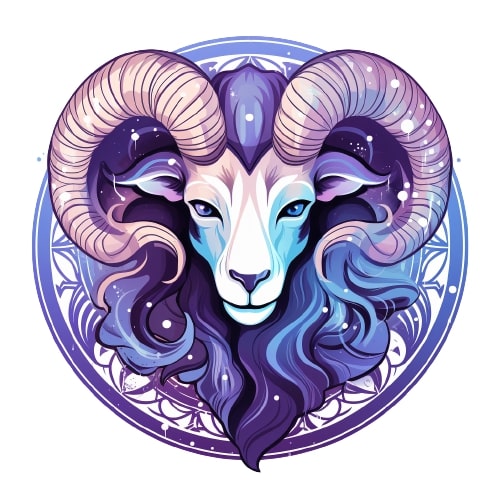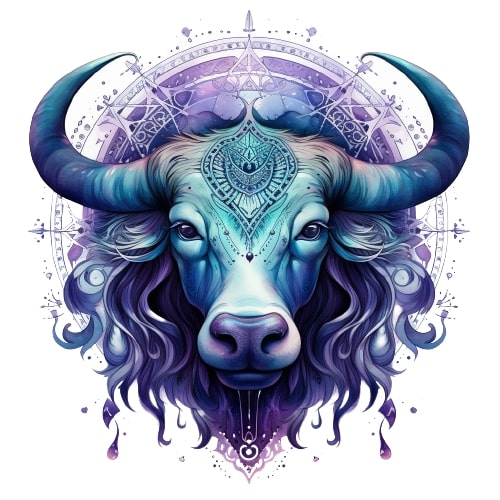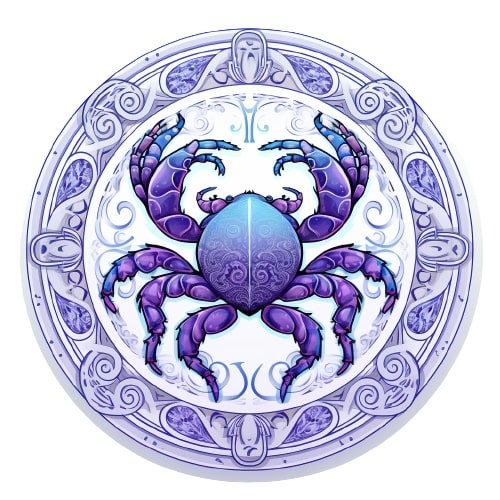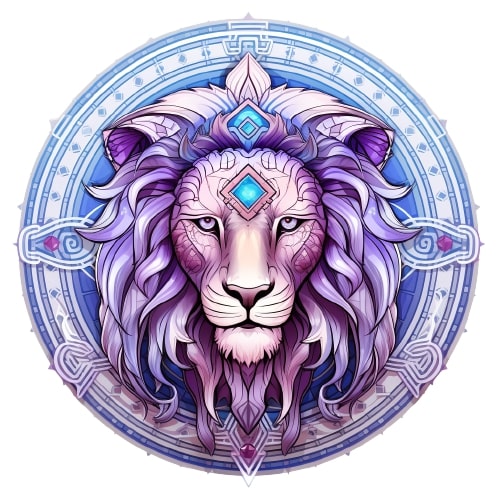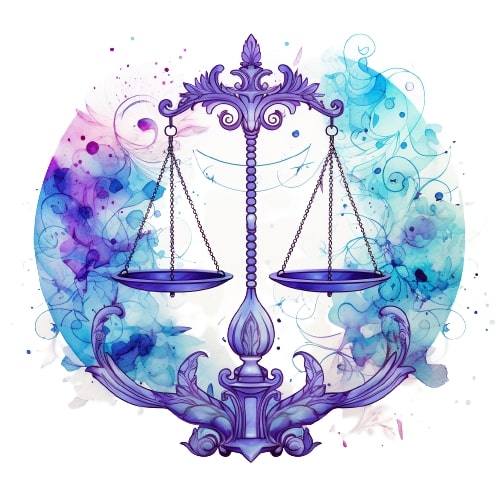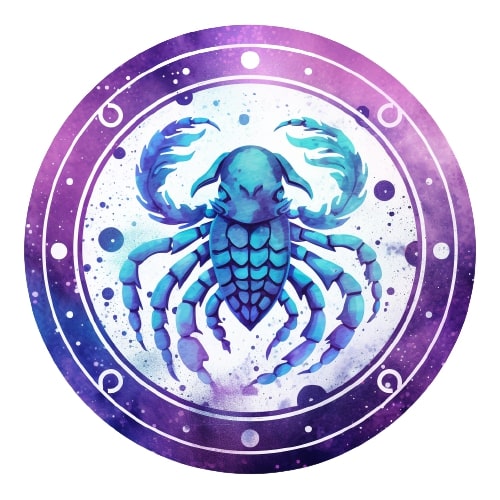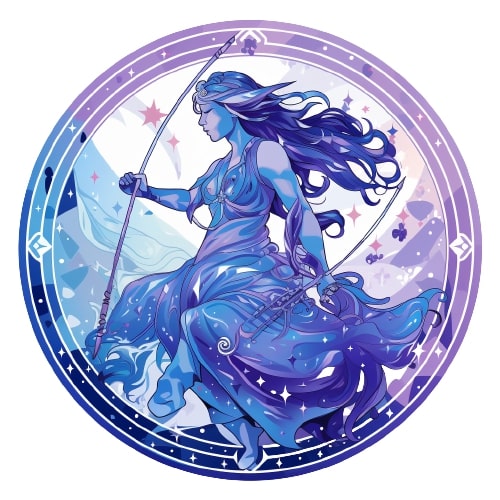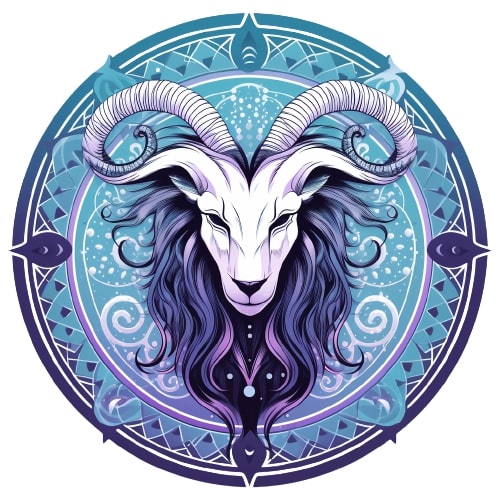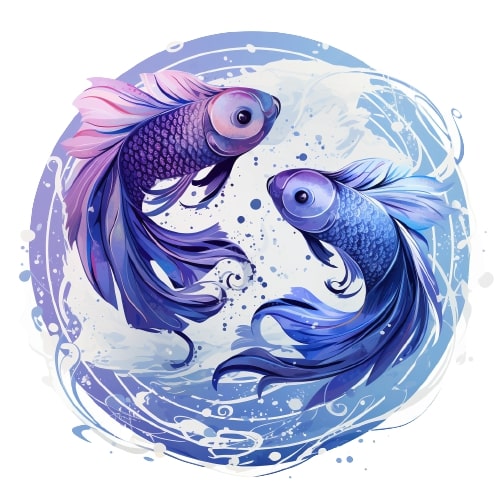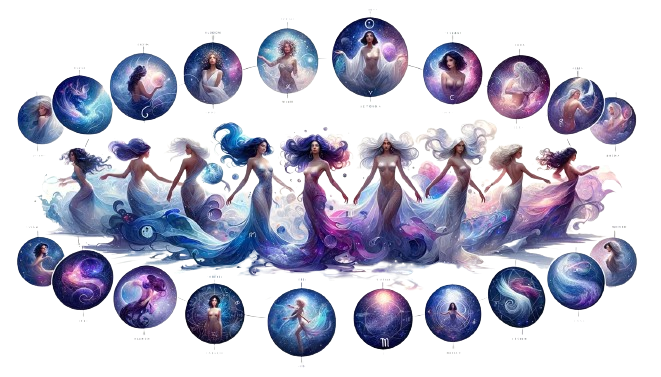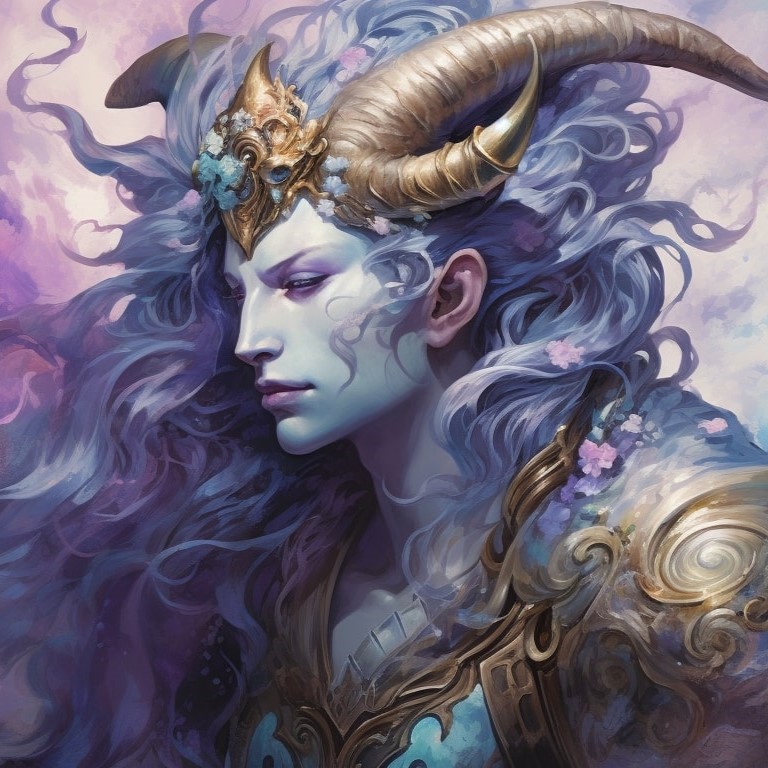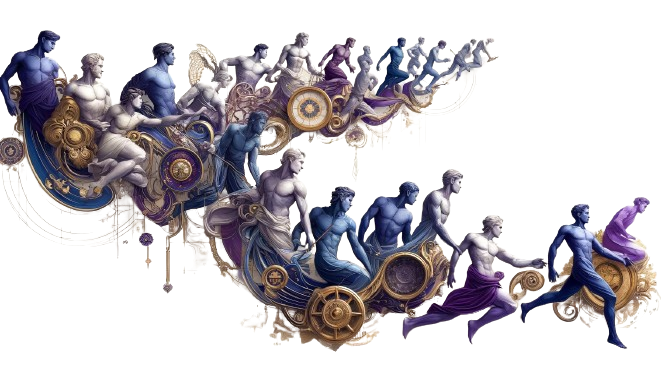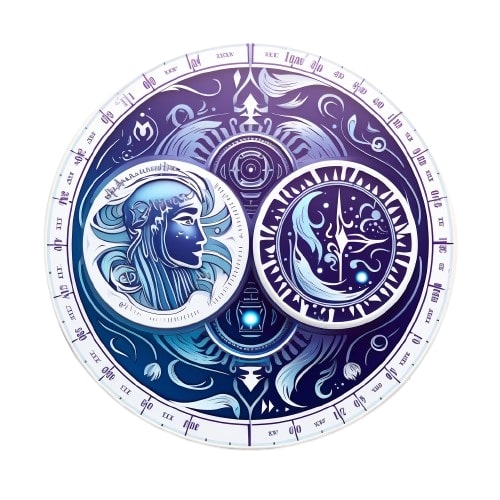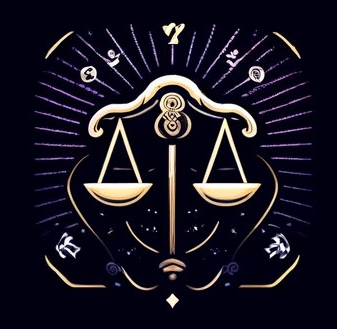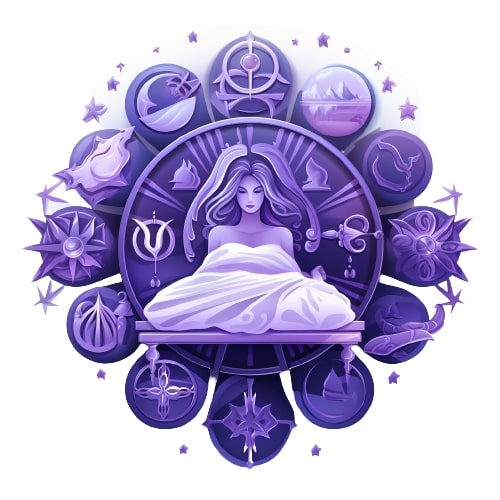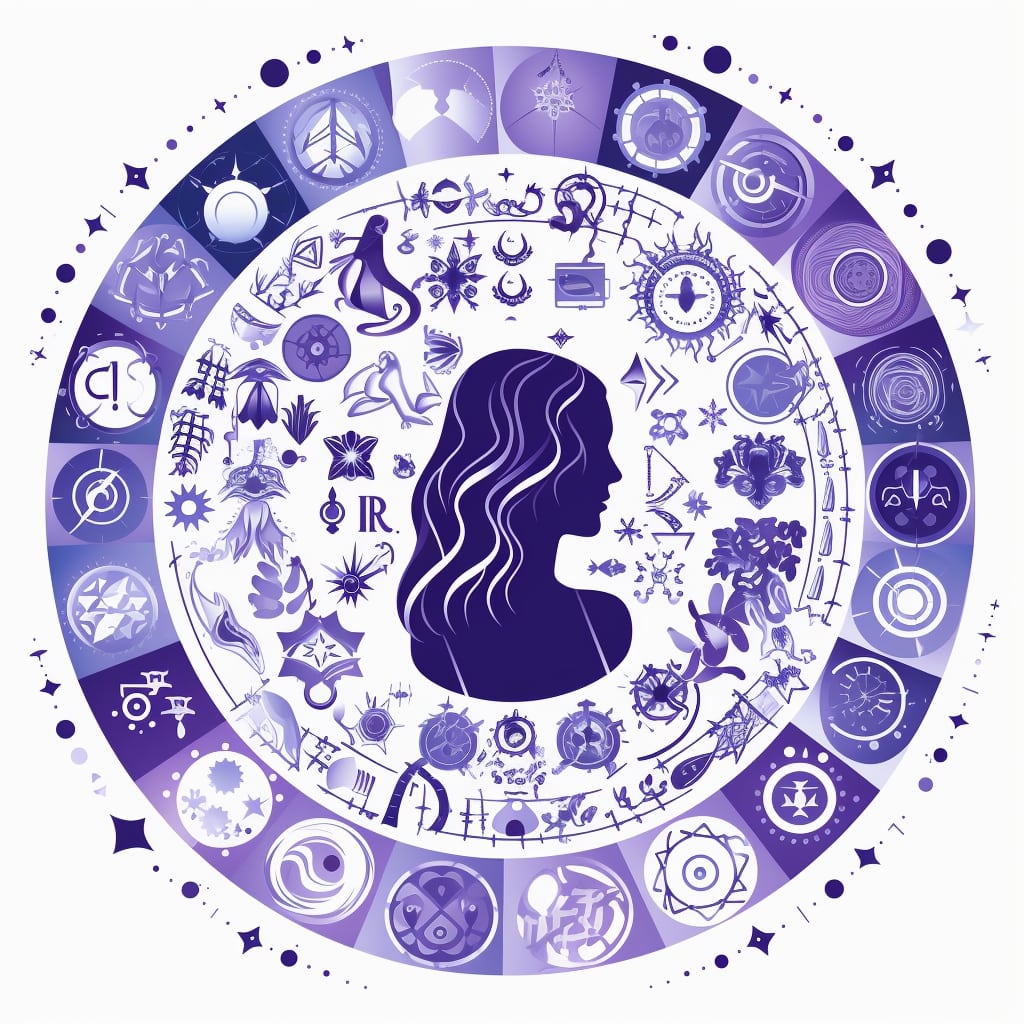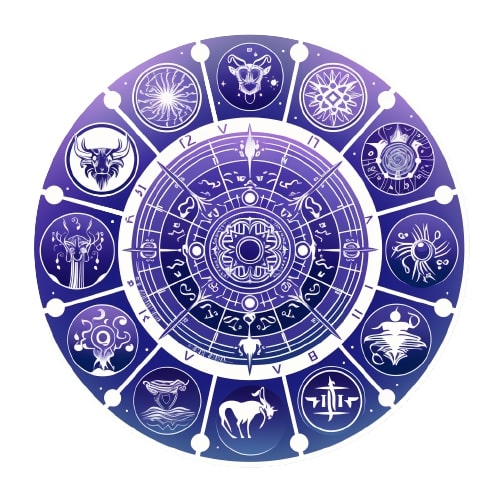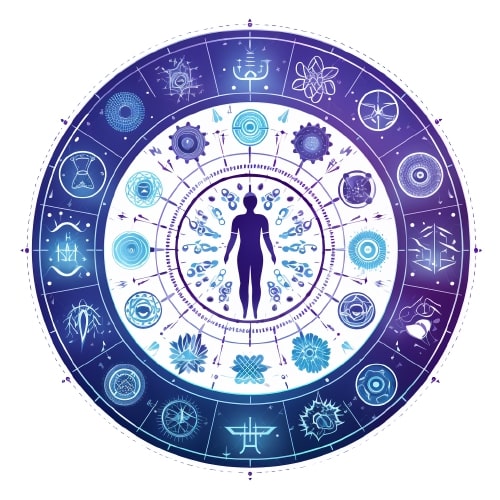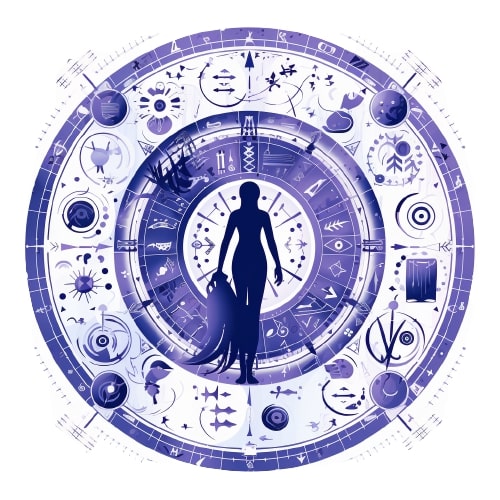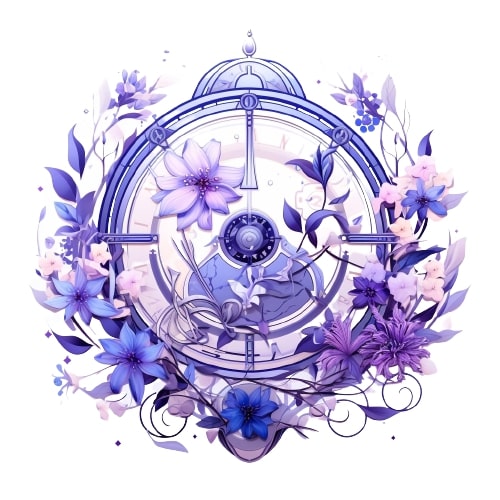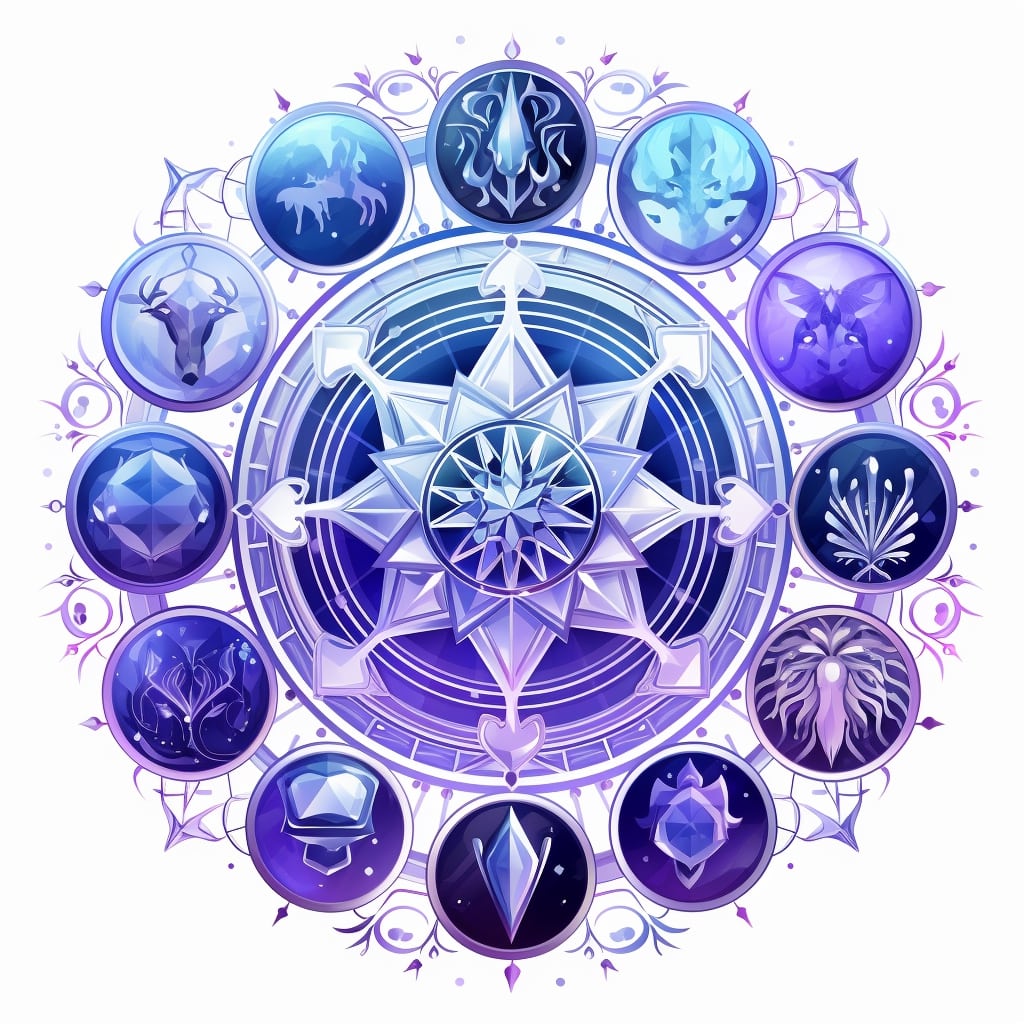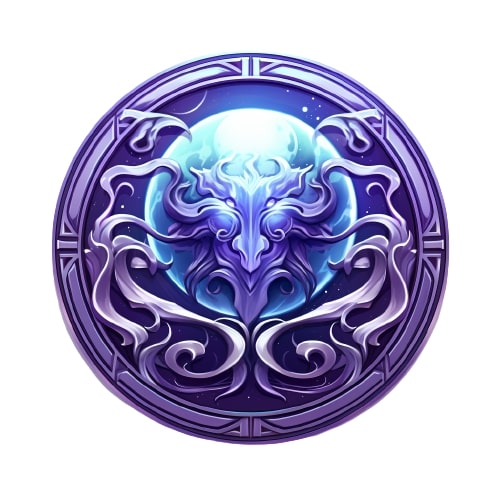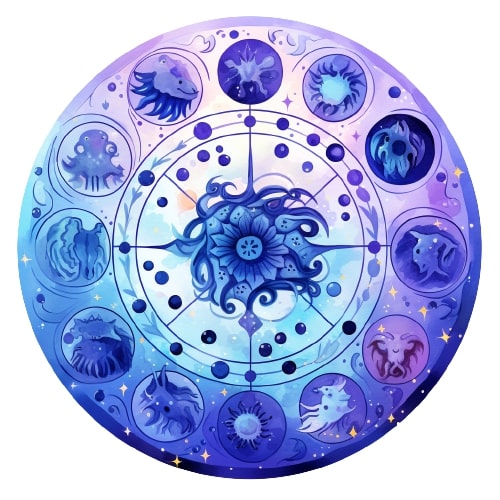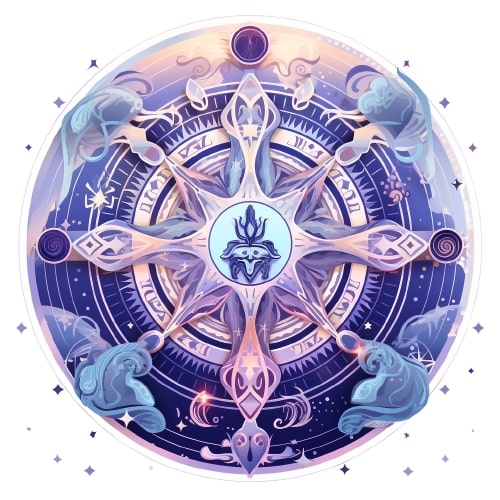Welcome to our exploration of the meanings and significance of the Hermit Tarot card. As one of the most introspective cards in the Tarot deck, the Hermit invites you to embark on a journey of self-awareness and introspective thinking. This card represents a period of deep introspection, where you can turn inward to better understand yourself and your life.
Through the symbolism and imagery of the Hermit, we can explore the themes of introspection, self-analysis, and self-reflection. The Hermit’s lantern represents the guiding light of self-awareness, illuminating the path toward inner wisdom and enlightenment.
As we delve into the inner journey of the Hermit, we will discover the power of self-examination and reflective thinking. By reflecting upon our thoughts, emotions, and experiences, we can gain profound insights into our spiritual and personal development. By reflecting on our experiences, we can deepen our self-awareness and gain valuable insights. We will explore various methods and exercises that encourage self-reflection for personal growth and self-awareness.

Understanding the Hermit Tarot Card
In the world of Tarot, the Hermit card holds deep symbolism and imagery that invites us to embark on a journey of introspection, self-analysis, and self-reflection. Representing solitude and inner wisdom, the Hermit Tarot card encourages us to pause, look within, and gain profound insights into ourselves.
When we delve into the symbolism of the Hermit card, we find a solitary figure standing on a mountaintop, holding a lantern. This representation signifies the importance of self-reflection and the search for spiritual truth. The Hermit’s lantern illuminates the path and represents the light of self-awareness that guides us on our personal growth journey.
The Hermit’s journey is one of profound introspection and self-analysis, guiding us to explore the depths of our soul. It prompts us to ask ourselves important questions, challenging us to confront our fears, desires, and truths. Through self-reflection, we gain a deeper understanding of our motivations, beliefs, and patterns of behavior.
The Hermit Tarot card invites us to embrace solitude to cultivate inner wisdom. It reminds us that it is essential to withdraw from the world’s external noise to listen to our hearts’ whispers. Self-reflection allows us to detach from the distractions of everyday life, helping us gain clarity and perspective on our journey toward self-discovery.
By embarking on the path of self-reflection and introspection, we open ourselves up to profound personal growth and transformation. The Hermit Tarot card guides us to explore our inner landscapes, confront our shadows, and embrace our authentic selves.
Key Takeaways:
- The Hermit Tarot card symbolizes introspection, self-analysis, and self-reflection.
- Through self-reflection, we gain deeper insights into our motivations and patterns of behavior.
- The Hermit’s lantern represents the light of self-awareness that guides us on our personal growth journey.
- Embracing solitude allows us to detach from external distractions and listen to the wisdom within.
- The Hermit card invites us to explore our inner landscapes and embrace our authentic selves.
The Inner Journey of the Hermit
Embark on the Hermit’s inner journey and explore the self-examination concept. The Hermit Tarot card beckons you to delve into the depths of your being, encouraging introspection and reflective thinking for spiritual and personal development.
Self-examination is the process of looking inward and exploring your thoughts, emotions, and experiences. It involves a deep introspection that allows you to better understand yourself and your life’s path. The Hermit invites you to engage in this self-examination, guiding you on a transformative journey of self-discovery.
Reflective thinking plays a crucial role in this inner journey. It involves objectively analyzing your thoughts, actions, and beliefs, inviting you to question and challenge them. Through reflective thinking, you can gain profound insights into your patterns, motivations, and desires, leading to personal growth and transformation.
The Benefits of Self-Examination and Reflective Thinking
Engaging in self-examination and reflective thinking offers numerous benefits on your inner journey. It allows you to:
- Gain self-awareness: By examining your thoughts and feelings, you can develop a deeper understanding of who you are, your strengths, weaknesses, and values.
- Discover hidden patterns: Self-examination brings to light recurring patterns, allowing you to identify behaviors and beliefs that may be holding you back or causing difficulties in your life.
- Facilitate personal growth: Through reflective thinking, you can challenge old beliefs, expand your perspective, and embrace new ways of being, fostering personal growth and positive change.
- Find clarity and direction: By exploring your inner world, you can gain clarity on your goals, desires, and the path you want to pursue in life.
- Cultivate empathy and understanding: Self-examination leads to a deeper understanding of oneself, which can then extend to a greater understanding and empathy towards others.
The inner journey of the Hermit combines self-examination and reflective thinking to facilitate personal and spiritual transformation. Embrace this opportunity to explore your inner landscape, foster self-awareness, and unlock the wisdom that resides within.
Unveiling Self-Awareness
Self-awareness is a fundamental component of the introspection process. It involves a deep understanding of oneself, including thoughts, emotions, strengths, weaknesses, and patterns of behavior. By developing self-awareness, individuals can embark on a journey of self-discovery and expand their consciousness.
When exploring the significance of self-awareness, the Hermit Tarot card serves as a powerful source of inspiration. This card invites individuals to delve into their inner world, encouraging them to reflect on their thoughts, feelings, and actions. Through introspective thinking, the Hermit Tarot card inspires individuals to unveil hidden aspects of themselves and gain newfound levels of self-awareness.
Self-reflection plays a crucial role in the journey of self-awareness. It allows individuals to examine their beliefs, values, and motivations, enabling them to gain clarity and insight into their true selves. By engaging in self-reflection, individuals can identify areas that require growth and make positive changes in their lives.
- Self-awareness enables individuals to make informed decisions, as it provides a deeper understanding of personal desires, goals, and values.
- Introspective thinking fosters self-acceptance and self-compassion, allowing individuals to embrace their strengths and weaknesses with kindness and understanding.
- Self-awareness promotes personal growth and development, as it creates opportunities for individuals to learn from their experiences and make meaningful changes.
Developing self-awareness through introspective thinking is an ongoing process that requires commitment and practice. By embracing the guidance of the Hermit Tarot card and engaging in self-reflection, individuals can unlock the transformative power of self-awareness, leading to a more fulfilling and authentic life.
The Power of Introspective Thinking
Introspective thinking is a powerful tool that can bring clarity and understanding into your life. You can gain valuable insights about yourself and your experiences by engaging in self-analysis and self-examination. This type of reflective thinking allows you to delve deep within and discover hidden truths, beliefs, and patterns that shape your thoughts and behaviors.
There are various techniques and practices that can enhance your introspection process. Here are some strategies to consider:
1. Journaling:
Express your thoughts and feelings through regular journaling. This allows you to explore your innermost thoughts and better understand your emotions, desires, and motivations.
2. Mindfulness Meditation:
Practice mindfulness meditation to cultivate present-moment awareness. This can help you observe your thoughts and feelings without judgment, allowing for deeper self-reflection and self-awareness.
3. Self-Questioning:
Ask yourself probing questions to explore your beliefs, values, and aspirations. By challenging and examining your thoughts, you can gain new perspectives and insights into yourself.
4. Seeking Feedback:
Seek feedback from trusted friends or mentors. They can provide different perspectives and offer insights you may not have considered, helping you better understand yourself.
5. Cognitive Behavioral Therapy (CBT):
Consider CBT techniques to identify and challenge negative thought patterns. This can help you uncover underlying beliefs and behaviors that may be hindering your personal growth.
By incorporating these practices into your life, you can harness the power of introspective thinking to gain self-awareness, enhance your self-analysis, and embark on a journey of self-examination. Through introspection, you can unlock your true potential and make positive changes in various aspects of your life.
Embracing Self-Reflection
Self-reflection is a powerful tool that deepens the introspective journey of self-discovery. It allows us to pause, look within, and better understand our thoughts, emotions, and actions. By embracing self-reflection, we open ourselves up to personal growth and self-awareness.
To foster self-reflection, there are various methods and exercises that can be practiced. These activities encourage us to examine our beliefs, values, and behaviors, providing valuable insights into our inner world. Here are a few techniques to try:
- Journaling: Writing down our thoughts, feelings, and experiences can help us deeply process and reflect on them. It allows us to uncover patterns, identify areas for growth, and gain new perspectives on ourselves.
- Meditation: By practicing mindfulness meditation, we cultivate a state of present-moment awareness. This enables us to observe our thoughts and feelings without judgment, leading to greater self-understanding.
- Self-Questioning: Asking ourselves thought-provoking questions helps us delve into our beliefs, motivations, and desires. It encourages us to critically examine our thoughts and behaviors, shedding light on areas of improvement.
- Artistic Expression: Engaging in creative activities such as painting, writing, or dancing can provide an outlet for self-expression. It allows us to tap into our subconscious and unlock hidden aspects of ourselves.
By incorporating these methods into our introspective journey, we can nurture self-reflection and deepen our understanding of ourselves. We gain valuable insights through self-reflection that lead to personal growth, increased self-awareness, and a more fulfilling life.
Nurturing Self-Awareness Through Self-Assessment
Self-awareness is an essential aspect of personal growth and introspection. By engaging in self-assessment, we can better understand ourselves, identify our strengths, weaknesses, and patterns, and gain a deeper self-understanding.
Self-assessment involves taking a conscious and objective look at various aspects of our lives, including our emotions, thoughts, behaviors, and relationships. It allows us to evaluate our personal growth, make informed decisions, and cultivate self-awareness.
The Role of Self-Assessment in Nurturing Self-Awareness
Self-assessment plays a crucial role in nurturing self-awareness by providing us with valuable information about ourselves. It helps us uncover patterns and tendencies that may not be immediately apparent, enabling us to dive deeper into our thoughts, emotions, and motivations.
Through self-assessment, we can identify areas that require improvement, enabling us to set personal goals and make positive changes. Moreover, self-assessment encourages introspection by allowing us to examine our values, beliefs, and aspirations, leading to a greater understanding of our true selves.
Assessing Strengths, Weaknesses, and Inner Patterns
One of the key aspects of self-assessment is evaluating our strengths, weaknesses, and inner patterns. This process involves identifying our talents, skills, and positive qualities and acknowledging areas where we may need to develop or overcome challenges.
Creating a list of strengths and weaknesses can be a helpful exercise for self-assessment. By recognizing our strengths, we can leverage them to achieve personal growth. On the other hand, acknowledging our weaknesses allows us to seek personal development opportunities and make proactive changes.
Examining our inner patterns, such as recurring thoughts, emotions, and behaviors, can provide valuable insights into our subconscious mind. This self-reflection can lead to self-awareness and spark a deeper understanding of ourselves.
Benefits of Self-Assessment for Introspection
Self-assessment acts as a catalyst for introspection and self-exploration. By engaging in self-assessment, we create space for self-reflection and self-analysis, enabling us to question our beliefs, challenge our assumptions, and gain a fresh perspective on our lives.
This process of introspection fosters personal growth by encouraging us to explore our values, passions, and purpose. It helps us align our actions with our authentic selves, fostering a sense of fulfillment and satisfaction. We can nurture self-awareness and cultivate a deeper connection with ourselves through self-assessment.
- Promotes self-awareness
- Supports personal growth and development
- Encourages introspection and self-exploration
- Facilitates alignment with authentic values and purpose
Cultivating Reflective Thinking Skills
Reflective thinking is a powerful practice that encourages self-examination and introspective thinking. By engaging in reflective thinking, we can gain valuable insights into our thoughts, emotions, and actions, leading to personal growth and a deeper understanding of ourselves.
Here are some strategies to help you cultivate reflective thinking skills and incorporate them into your daily life:
- Journaling: Set aside dedicated time to write in a journal regularly. Use this space to reflect on your experiences, thoughts, and feelings. This practice allows you to delve deeper into your inner world and gain clarity.
- Mindfulness: Practice being fully present in the moment. Take time to observe your thoughts, emotions, and physical sensations without judgment. This awareness can help you identify patterns and triggers, fostering self-examination.
- Seeking feedback: Be open to receiving feedback from trusted friends, mentors, or professionals. Hearing different perspectives can provide valuable insights and challenge your assumptions, prompting reflective thinking.
- Asking reflective questions: Develop a habit of asking yourself thought-provoking questions, such as “Why did I react that way?” or “What can I learn from this experience?” These questions encourage introspection and facilitate self-examination.
- Meditation: Incorporate meditation into your daily routine to cultivate a calm, focused mind. This practice enhances self-awareness and allows for deeper reflection on your thoughts, emotions, and inner experiences.
By actively engaging in reflective thinking, you can unlock new insights, gain self-awareness, and foster personal growth. Embrace this practice as a means to cultivate a deeper understanding of yourself and promote introspective thinking in your life.
Practical Tips for Introspection
Introspection is a powerful tool for self-awareness, self-reflection, and self-analysis. By delving deep within ourselves, we can gain valuable insights and understanding. Here are some practical tips and techniques to enhance your introspection practice and foster personal growth:
Create a Peaceful Environment
Set aside dedicated time and create a peaceful environment for introspection. Find a quiet space where you can be alone and free from distractions. Surround yourself with objects or elements that bring you calmness and tranquility, such as candles, soft music, or natural scents.
Journaling
Journaling is an excellent way to engage in self-reflection and self-analysis. Write down your thoughts, feelings, and observations without judgment. Use prompts or questions to guide your writing and explore different aspects of your life. Regular journaling can help you identify patterns, track your progress, and gain clarity.
Meditation and Mindfulness
Practice meditation and mindfulness to cultivate a present-moment awareness. Set aside time each day to sit in silence, focusing on your breath or a specific mantra. Allow your thoughts and emotions to arise without judgment, observing them with curiosity and compassion. Mindfulness meditation can help you develop a deeper connection with yourself and enhance introspective thinking.
Seek Solitude in Nature
Spending time in nature can be incredibly nurturing for introspection. Take walks in serene surroundings like parks, forests, or beaches. Connect with the beauty of nature and let it inspire your reflective thinking. Use this time to ponder on your thoughts, ask yourself questions, and gain fresh perspectives on your journey of self-discovery.
Ask Yourself Thought-Provoking Questions
- What are my core values and beliefs?
- What are my strengths and weaknesses?
- What are my goals and aspirations?
- What patterns do I observe in my thoughts and behaviors?
- How do my relationships contribute to my personal growth?
Engage in Creative Expression
Explore different forms of creative expression, such as painting, writing, or dancing. These activities can tap into your subconscious mind and facilitate introspection. Allow yourself to express your thoughts and emotions freely through these mediums, uncovering deeper layers of self-awareness and self-reflection.
By incorporating these practical tips into your introspection practice, you can deepen your understanding of yourself and navigate your life with greater clarity. Embrace the journey within and empower yourself through the transformative power of introspective thinking.
The Transformative Power of Introspection
Introspection, the act of examining one’s thoughts, emotions, and experiences, holds immense transformative power. It allows individuals to embark on a profound journey of self-discovery, leading to personal growth, healing, and self-realization. Through introspection, one can dive deep into one’s inner world, gaining insights and clarity that can profoundly impact one’s life.
Reflective thinking is a fundamental aspect of introspection, enabling individuals to analyze their thoughts, behaviors, and patterns. By engaging in self-analysis, one can uncover hidden truths, understand their motivations, and recognize areas for improvement. This process of self-awareness and self-analysis is a catalyst for personal growth, empowering individuals to make positive changes in their lives.
Examples of Transformative Introspective Practices
- Journaling: Writing down thoughts, emotions, and reflections fosters self-awareness and self-analysis, providing a space for deep introspection.
- Meditation: By cultivating mindful awareness, meditation helps quiet the mind and facilitates introspective thinking, promoting self-growth and inner peace.
- Therapy: Seeking the guidance of a trained professional can support the introspective process, offering a safe and supportive space for self-reflection and understanding.
- Contemplative practices: Engaging in activities such as walking in nature, painting, or playing an instrument encourages reflective thinking and opens the doors to self-discovery.
Introspection is a deeply personal and unique journey, and its transformative power is evident in the inspiring stories of those who have embraced it. From overcoming past traumas to finding purpose and meaning in life, individuals have tapped into their inherent wisdom through introspective practices. The path of introspection holds the potential to unlock one’s true potential, fostering self-awareness, personal growth, and a deeper understanding of oneself.
Bottom Line
In conclusion, the Hermit Tarot card profoundly fosters introspection, self-awareness, self-reflection, and self-analysis. By embracing the journey within, individuals can unlock the secrets to deeper self-understanding and personal growth.
Through the practice of introspective thinking, the Hermit Tarot card invites us to delve into our inner selves with curiosity and openness. This journey allows us to gain valuable insights into our thoughts, emotions, and behaviors, leading to heightened self-awareness.
Self-reflection acts as a compass, guiding us towards personal growth and transformation. By reflecting on our experiences, beliefs, and values, we gain a clearer understanding of who we are and what we truly desire in life.
Furthermore, self-analysis enables us to assess our strengths, weaknesses, and patterns of behavior, empowering us to make conscious choices and meaningful changes. By integrating introspective practices into our daily lives, we cultivate the ability to navigate life’s challenges with wisdom and clarity.
